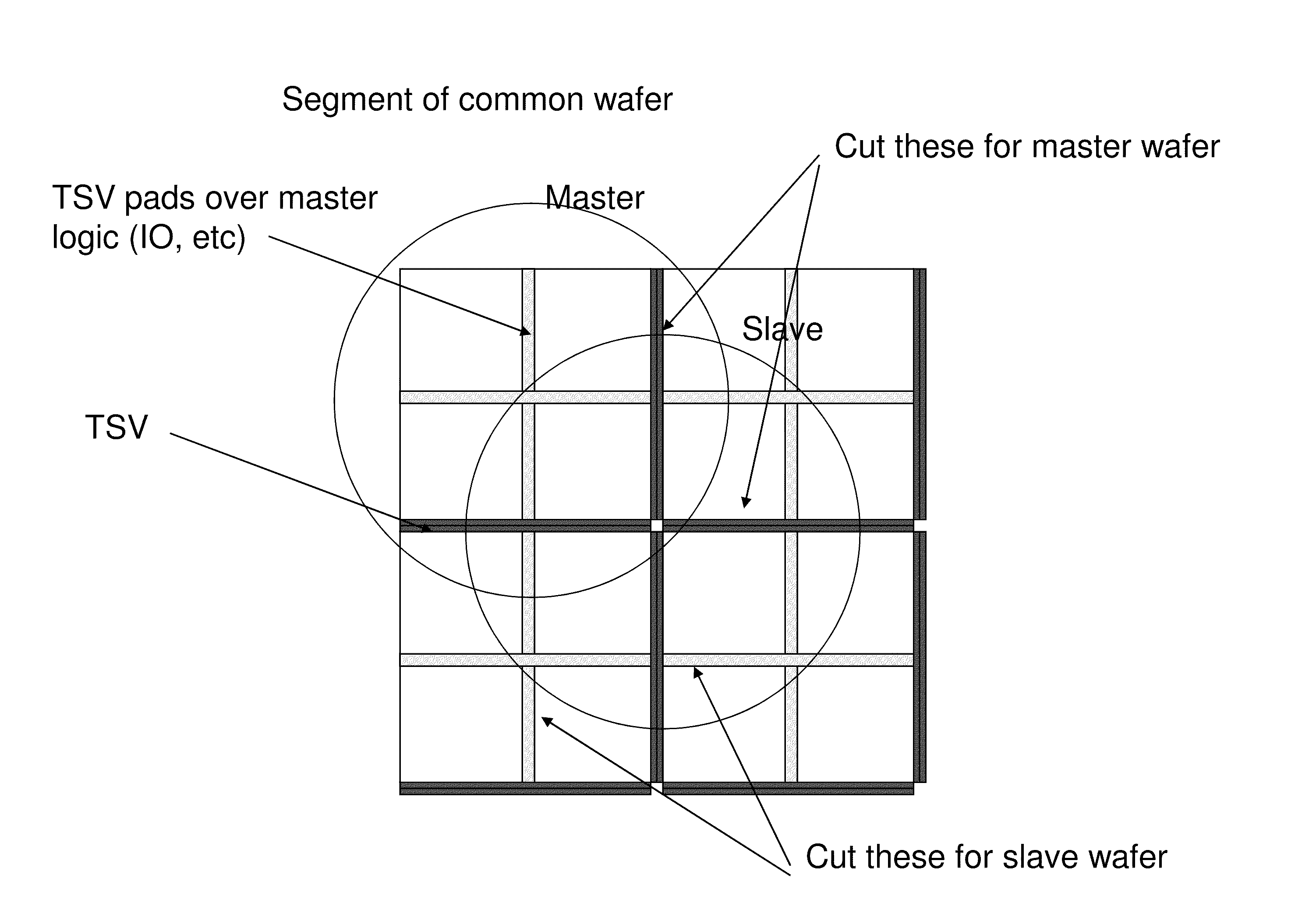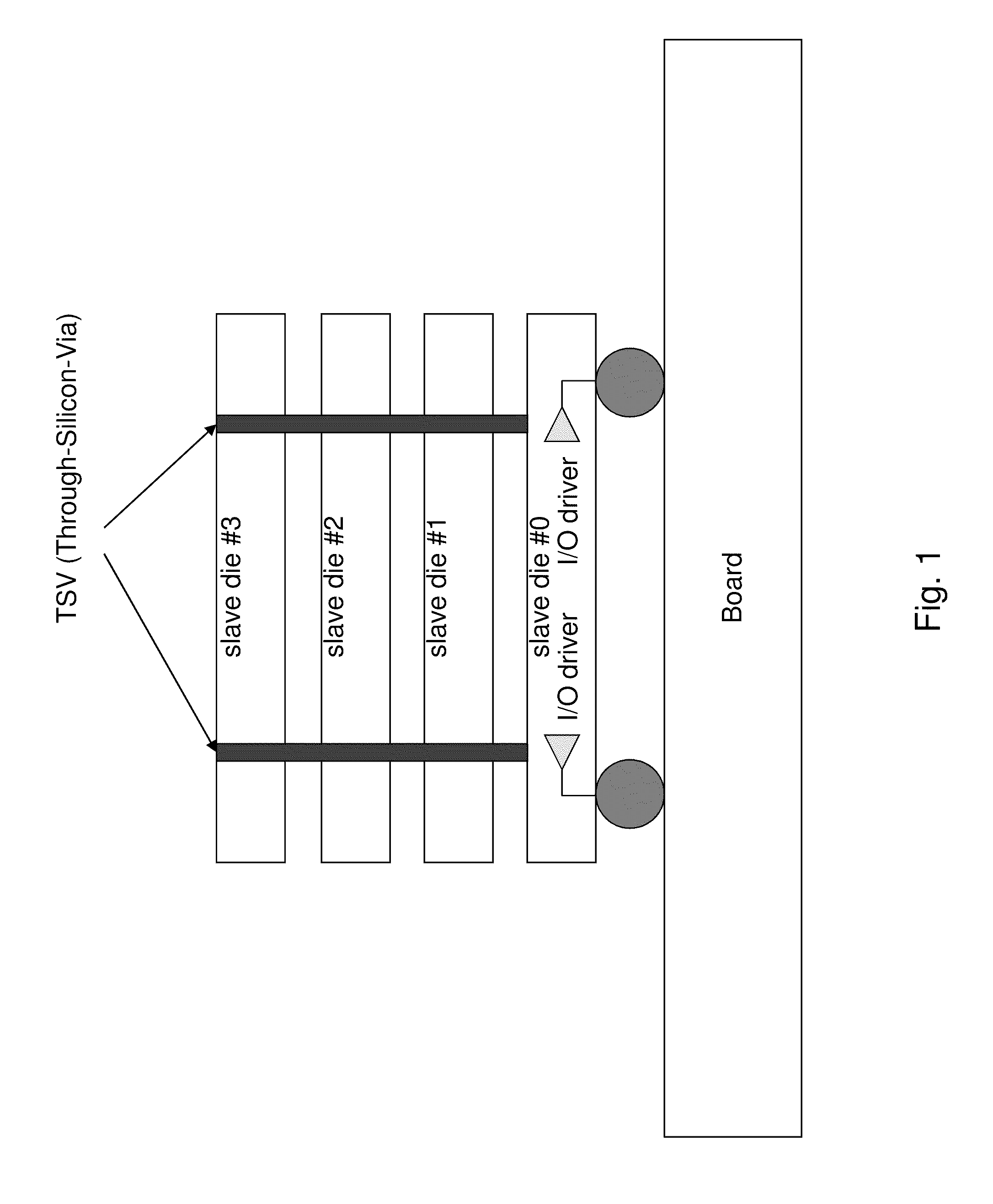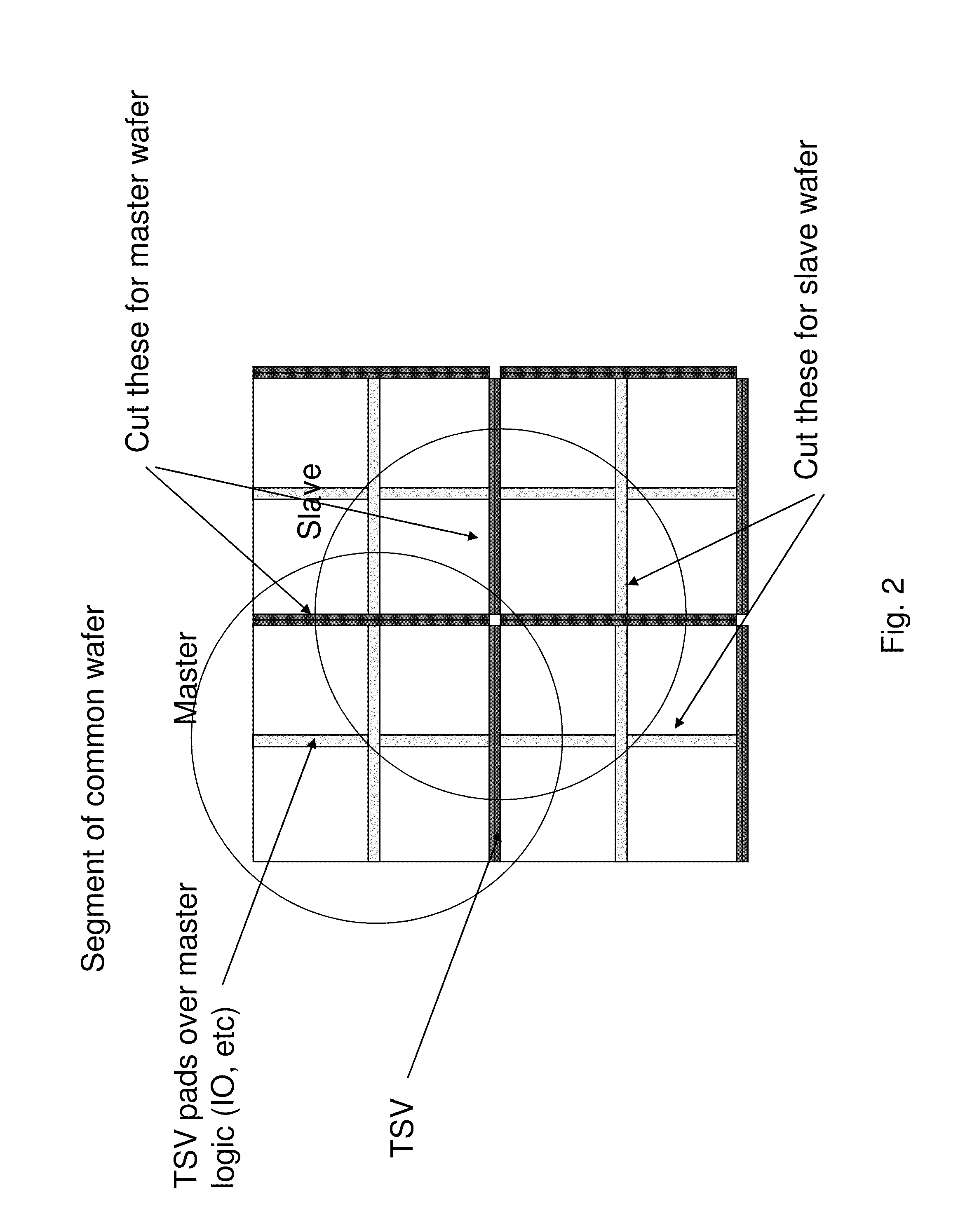Computer system wafer integrating different dies in stacked master-slave structures
- Summary
- Abstract
- Description
- Claims
- Application Information
AI Technical Summary
Benefits of technology
Problems solved by technology
Method used
Image
Examples
Embodiment Construction
[0020]Turning now to the drawings in greater detail, it will be appreciated that as shown in FIG. 1, a 3D stacked master-slave TSV structure which can be provided where the bottom die interfaces to the outside of the component and upper dies communicate only with the master die using the I / O drivers on master slave die #0 to communicate through the bump connectors to the bump connected board / asic substrate on which the 3D stack structure is mounted. A preferred stack is illustrated in FIG. 7. Just as is shown in FIG. 1, after separation individual circuit dies are stacked as a 3D chip stack bump bonded board / asic substrate carrying said master bus, each die of said 3D chip stack being separated from a single wafer with a common wafer image of integrated circuits which have die circuit connection elements useful as master and as slave elements in dies separable from one or more wafers having said common wafer image.
[0021]Here the TSV structure has the bottom slave die #0 acting as th...
PUM
 Login to View More
Login to View More Abstract
Description
Claims
Application Information
 Login to View More
Login to View More - R&D
- Intellectual Property
- Life Sciences
- Materials
- Tech Scout
- Unparalleled Data Quality
- Higher Quality Content
- 60% Fewer Hallucinations
Browse by: Latest US Patents, China's latest patents, Technical Efficacy Thesaurus, Application Domain, Technology Topic, Popular Technical Reports.
© 2025 PatSnap. All rights reserved.Legal|Privacy policy|Modern Slavery Act Transparency Statement|Sitemap|About US| Contact US: help@patsnap.com



